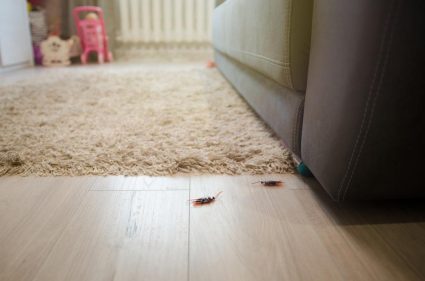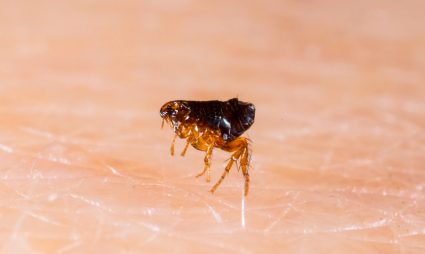
Keeping your kitchen free from mice is a common household concern. These rodents are not just a nuisance, but they can also pose serious health risks by spreading diseases and damaging property. This comprehensive guide will provide you with an all-in-one solution to deter mice from the kitchen. We’ll discuss the reasons why mice are attracted to kitchens, signs of infestation, and multiple effective strategies to keep them away.
To deter mice from the kitchen, use natural repellents like peppermint oil, cinnamon, and vinegar, and place them in areas where mice are likely to enter or hide. Seal any small gaps or holes in your kitchen, especially around pipes, vents, and electrical lines. Maintain cleanliness by cleaning up crumbs or spills immediately, storing food in sealed containers, and taking out the trash regularly. Eliminate potential hiding spots by keeping your kitchen organized. Use traps if necessary. Lastly, prevent re-infestation by regularly inspecting your home for potential entry points and maintaining cleanliness.
Why Are Mice Attracted to Kitchens?
Kitchens provide the perfect environment for mice, supplying them with the three essential elements they need to survive: food, water, and shelter. Kitchens offer an abundance of food sources such as crumbs, spills, and unsealed food packages. Mice are expert scavengers and can detect the warmth of a building through wall openings, which is especially inviting during colder months.
Signs of Mice Infestation in the Kitchen
There are several signs that may indicate a mouse infestation in your kitchen. These include droppings, scratching noises, a strong musky odor, gnaw marks, small clear-cut holes, runways, nests, urine pillars, and unusual pet behavior. If you notice one or more of these signs, it’s time to take action.
Effective Methods to Deter Mice
Natural Repellents
Mice dislike certain smells, making natural repellents an effective and non-toxic way to deter them. Some of the most effective natural repellents include peppermint oil, cinnamon, vinegar, citronella, and cloves. Soak cotton balls in these oils and place them in areas where mice are likely to enter or hide. You can also consider products like Mighty Mint Peppermint Oil Rodent Repellent Spray or Natural Armor All-Natural Rodent Shield for a more convenient solution.
Seal Entry Points
Mice can squeeze through small gaps and holes. Inspect your kitchen for any openings, especially around pipes, vents, and electrical lines. Fill small holes with steel wool and seal them with caulk or spray foam.
Maintain Cleanliness
Keeping your kitchen clean is one of the best ways to deter mice. Clean up any crumbs or spills immediately, store food in sealed containers, and take out the trash regularly.
Eliminate Hiding Spots
Mice like to hide in cluttered areas. Keep your kitchen organized and remove any unnecessary items that could provide shelter for mice.
Use Traps
If you already have a mouse problem, consider using traps to catch and remove them. There are various types of traps available, including snap traps, glue traps, and live-catch traps. Some effective mouse traps include Tomcat Press ‘N Set Mouse Trap and Catchmaster Baited Rat, Mouse, and Snake Glue Traps.
Preventing Re-infestation
Prevention is key to keeping mice out of your kitchen. Regularly inspect your home for potential entry points and seal them. Maintain cleanliness in your kitchen, store food properly, and use natural repellents to make your kitchen less appealing to mice.
If your DIY methods have failed or your mouse problem is severe, don’t hesitate to contact a professional pest management company. They can correctly identify the species of mouse and develop a treatment plan that is effective and efficient for your specific infestation.
Remember, dealing with a mice infestation can be challenging and may require time and persistence. But with the right knowledge and strategies, you can keep your kitchen free from these unwanted guests.
Frequently Asked Questions
How often should I replace the natural repellents?
Natural repellents like peppermint oil or vinegar should be replaced every few days or when you notice the scent has faded. Remember, the stronger the smell, the more effective the repellent will be.
What should I do if I find a nest in my kitchen?
If you find a mouse nest, it’s important to act quickly. Wear gloves and dispose of the nest in a sealed bag. Clean the area thoroughly with disinfectant to eliminate any lingering germs or pheromones that could attract more mice. If nests are frequently found, it might be time to contact a professional pest management company.
How can I prevent mice from entering my house in the first place?
Prevention is the key. Seal any potential entry points, maintain cleanliness, store food in sealed containers, and use natural repellents. Regular inspections around your home can also help identify and rectify any potential mouse entry points before an infestation occurs.
Are there any specific times when mice are more active?
Mice are nocturnal creatures, so they are most active during the night. However, if you spot a mouse during the day, it could indicate a larger infestation as it means the mouse is venturing out in search of food due to increased competition.
Are there any risks associated with handling mouse traps?
Yes, there can be risks associated with handling mouse traps. Always follow the manufacturer’s instructions when setting up and disposing of traps. Wear gloves to protect yourself from potential diseases that mice may carry. Also, keep traps out of reach of children and pets.










